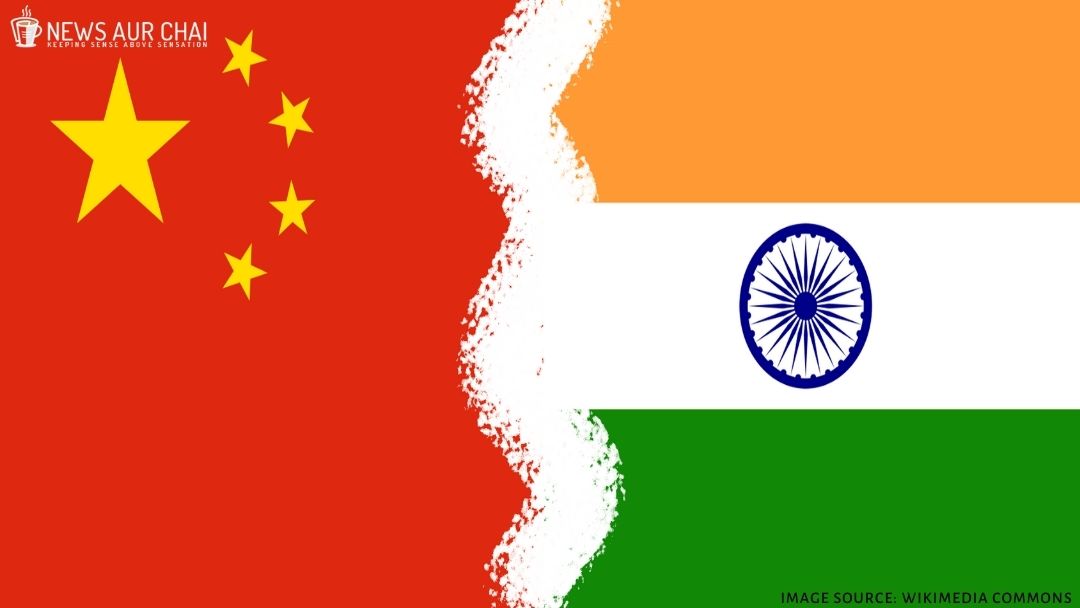
India-China border dispute has been a topic of discussion since the start of the year, with multiple attempts being carried out to arrive at a mutual solution by maintaining communication through military and diplomatic channels, for the six-month-long standoff in Ladakh. Recent develops in military-level talks shows that there is a slight hope for a betterment of relations.
Background:
The standoff kick-started between two nuclear neighbours in May, but a clash in June wherein 20 Indian soldiers were killed worsened the situation at the border. US tried to take advantage of this unrest, by extending and helping hand towards India.
However, Beijing stated that the issue between India-China is bilateral and asked the US to stop imposing its strategies, terming it as an American leader in the region.
Infrastructure developments at border:
India-China are recently competing to create infrastructure along the border, which is additionally referred to as the road of Actual Control. Construction of roads and bridges by India as part of development activities were seen as a threat by China.
With the senior military commanders of both the countries talking to each other on one side, the Chief of Defence Staff General Bipin Rawat related these tensions along the Line of Actual Control (LAC) to offensive and hostile actions by China. He said that this large-scale conflict cannot be ruled out and stressed on the point that Pakistan and China together are a constant threat. This military tension in the border is a growing political pressure, which has spoiled the relation between Prime Minister Narendra Modi and President Xi Jinping. This could also lead to an economic fallout since China has been one of India’s biggest trading partner.
India-China also had a faceoff near the east border shared between Arunachal Pradesh and Tibet. With the rivers in the area and the potential national capacity, Tibet is a crucial power area for China.
Many dam projects are to be undertaken by China on this border. This is a cause of concern for India, as the construction of these dams will continue the border disputes and could also create a strategic divide between India and its Himalayan rivers. Chinese Foreign Minister claims that Arunachal Pradesh is not a threat and constructing dams in the region could be used as a strategic tool to control the area.
China’s speedy rail construction in border:
On Sunday, Mr Jinping instructed officials to step up the construction of the railway project that connects the Sichuan province in the southwest border of China to Linzhi in Tibet which is also close to the Indian border in Arunachal Pradesh.
Their decision to do so is to safeguard their strength and control in the border areas. This railway line would be the second into Tibet after the Qinghai- Tibet railway project. The Sichuan- Tibet Railway line will start from the capital of Sichuan, Chengdu and will go through Ya’an and enter Tibet from Qamdo, reducing the journey from Chengdu to Lhasa to 13 hours, which was earlier 48 hours.
Linzhi, which is also known as Nyingchi, is situated close to the Arunachal Pradesh border. In the existing India- China border issue, Bejing claims that Arunachal Pradesh is a part of south Tibet, which India had rejected firmly.
One, out of the five airports built by China in the Himalayan region, is in Linzhi. Mr Jinping recognized this railway project as an essential measure to ease the Communist Party’s plan on governing Tibet. He also mentioned that this would ensure to safeguard national unity, promote ethnic solidarity and consolidate stability in border areas.
The railway project will accelerate and enhance the economic, social development of Tibet and also safeguard border stability. In the conference, the Chinese Premier Li Keqiang emphasized prioritizing the safety and quality of this project and said that coordinated efforts are being put into the construction.
India – Philippines relation:
The 4th Joint Commission meeting on Bilateral Cooperation was held virtually between India and Philippines on November 6. The External Affairs Minister, S Jaishankar and the Secretary of Department of Foreign Affairs, Mr Teodoro Locsin co-chaired the meeting. The External Affairs minister said that the meeting between both the countries was focused on taking ahead of the cooperation in education, trade and investment, defence, communications and space and information technology.
There was discussion on topics having mutual significance along with reassurance to strengthen cooperation in shared challenges, mainly in the health sector, keeping in mind the pandemic. Mr Jaishankar and Mr Locsin also discussed regional and international issues that affect both the countries.
Before this agreement, in October, President Rodrigo Duterte’s lifted the ban on exploration the Philippines South China Sea, giving way for joint oil exploration projects, mainly with Chinese companies.
With the Philippines trying to maintain a peaceful relation with India and lifting the ban on China, an attempt to maintain cordial relations, there could be the emergence of international issues or could also lead to a peaceful international relation, hence not adding to the existing India- China dispute.
Today, while addressing the Shanghai Cooperation Organisation (SCO) summit, PM Modi delivered a stern message to China and Pakistan. In his speech, addressed via video conferencing, PM said that all member nations should respect each others’ territorial integrity.
Speaking at the SCO Summit. https://t.co/WS136xN3Vz
— Narendra Modi (@narendramodi) November 10, 2020
“It is unfortunate that there are unnecessary attempts to bring bilateral issues in the SCO agenda, which violates SCO Charter and Shanghai spirit,” the PM said.
Currently, India-China seems to be arriving at a breakthrough over the disengagement along the LAC in easter Ladak as talks at the military level are moving in the right direction. As per the reports by India Today, the mode of disengagement will be finalized in the next few days, as the plan is the withdrawal of all the sectors in a phased manner.
Meanwhile, as per the intelligence report, a Pakistan based terror group is planning to a major infiltration bid in Jammu and Kashmir before Diwali. Security along the Line of Control has been tightened following the alert.





